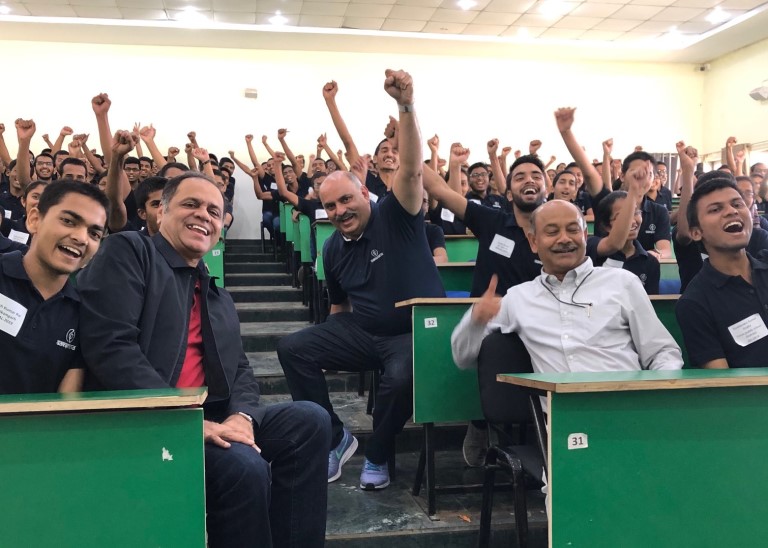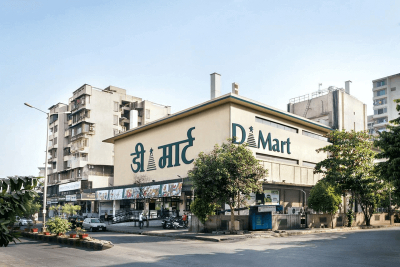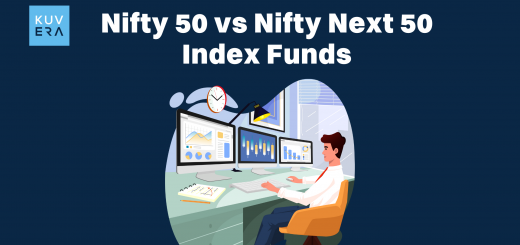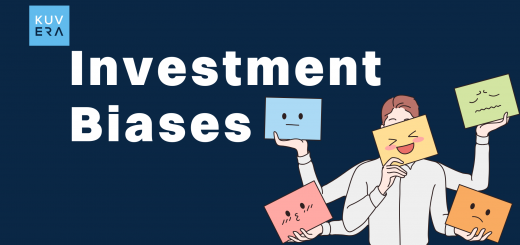A wise man named Radhakishan Damani once said,
“Don’t Follow The Herd. Each individual is different, so are their investment goals.”
Radhakishan Damani is not just a name. He has built a legacy over decades. With his portfolio of strong fundamentals and building India’s largest supermart chain, he has proved to be a visionary person. Other than his journey from a humble background to being at the top of Hurun India’s Self-Made Entrepreneurs List 2024, let’s find out how he built his legacy over the years.
Early Life and Background

Born in 1954 in Bikaner, Rajasthan, Radhakishan Shivkishan Damani’s journey began in a modest Mumbai household. He dropped out of college at the University of Mumbai, where he had enrolled in a bachelor’s degree in commerce. He then joined his father’s ball-bearing business. However, his father’s untimely passing shifted Damani’s focus to the stock market, where he used his analytical skills. This made him stand out amongst the rest of the crowd.
His Investment Philosophy

Damani’s success lies in two things– patience and a value-based approach to investing. He believes in buying undervalued stocks with solid fundamentals and holding them for the long term. His strategy emphasises on three important things:
- Quality Stocks: Investing in companies with strong financials and business models.
- Diversification: Spreading investments across sectors.
- Rebalancing: Regularly revisit and adjust the portfolio as and when needed.
DMart: A Revolution in Indian Supermarkets
In 2002, Damani founded DMart. He changed India’s retail industry with DMart’s “everyday low prices” model. DMart is a chain of hypermarkets that fulfills the everyday needs of Indian households. Its stores offer a wide range of products, including groceries, apparel, home essentials, and personal care items. All at highly competitive prices.

The business model is simple. It focuses on high-volume sales and maintains low margins. DMart makes sure that affordability is a most for all customers while remaining profitable as well.
DMart’s unique approach to retail involves owning its store properties instead of renting. This reduces long-term costs and increasing operational efficiency. This strategy allows the company to invest in better inventory management and pass on savings to its customers. With over 300 stores spread across 11 states in India, DMart has become a household name and a leader in the retail sector. Its emphasis on quality products, efficient supply chain management and customer-centric policies have set it apart from competitors.
| Highlights of DMart’s Success | |
|---|---|
| Low-Cost Business Model | By owning store properties, DMart reduces rental expenses, ensuring lower product prices. |
| High-Volume, Low-Margin Sales | Focus on selling large quantities at minimal margins, attracting value-conscious consumers. |
| Cluster Expansion | Saturating one geographical region before moving to others, ensuring operational efficiency. |
| Private Label Brands | Offering cost-effective alternatives to popular brands. |
The first store in Powai, Mumbai, was a stepping stone to building one of India’s largest and most profitable retail chains, now operating over 300 stores nationwide. By owning store properties and focusing on essentials like groceries, DMart has created a cost-efficient model that resonates with Indian households.
Current Portfolio of Radhakishan Damani

Let’s see how his current portfolio looks like. Here are the top 10 companies where he has he invested:
| S. No. | Name of Company | Value (₹ in crore) |
|---|---|---|
| 1 | Avenue Supermarts Ltd. | 151410.55 |
| 2 | Trent Ltd. | 3140.56 |
| 3 | VST Industries Ltd. | 1640.83 |
| 4 | Sundaram Finance Ltd. | 1147.68 |
| 5 | United Breweries Ltd. | 644.14 |
| 6 | 3M India Ltd. | 516.02 |
| 7 | Blue Dart Express Ltd. | 211.47 |
| 8 | Bhagiradha Chemicals & Industries Ltd. | 132.21 |
| 9 | Sundaram Finance Holdings Ltd. | 122.67 |
| 10 | BF Utilities Ltd. | 37.99 |
Start investing in index funds.
RK Damani’s Net Worth
According to Bloomberg Billionaires Index, RK Damani has a net worth of $16.2 billion as of 26th December 2024. His fortune primarily comes from his 59% stake in Avenue Supermarts, the parent company of D-Mart.
Topping the Hurun List
In 2024, Radhakishan Damani topped the IDFC First Private & Hurun India’s Top 200 Self-Made Entrepreneurs of the Millennia list. With a valuation of ₹3.4 lakh crore, his wealth grew by 44%, showcasing his vision in the business world. This recognition shows his exceptional contributions to India’s retail and investment sectors. He has solidified his status as a visionary entrepreneur.
According to @HurunReportInd, 121 billion-dollar companies were founded by self-made #entrepreneurs. Check out the top 10 self-made entrepreneurs here👇#chartoftheday pic.twitter.com/Xui1EBaRm3
— Kuvera (@Kuvera_In) December 26, 2024
Wrapping Up
Radhakishan Damani’s story is a testament to the power of patience, perseverance, strategic thinking and a customer-first mindset to business. From his early days in stock trading to founding DMart, his journey is a proof how value-based investing and having a strong business acumen can create lasting wealth.
Or as RK Damani says,
“Buy quality, don’t time the market”.
FAQs
Who is Radhakishan Damani?
Radhakishan Damani is an Indian billionaire, founder of DMart, and one of India’s most successful investors.
What is RK Damani full name?
RK Damani’s full name is Radhakishan Shivkishan Damani.
What is Radhakishan Damani’s net worth?
His net worth is approximately $16.2 billion as of 26th December 2024.
Which is the largest holding in Radhakishan Damani’s portfolio?
Avenue Supermarts Ltd. (parent company of DMart) is his largest holding, accounting for a significant portion of his wealth.
When was DMart founded?
DMart was founded in 2002 in Powai, Mumbai.
How does DMart keep prices low?
By owning stores, purchasing in bulk and operating efficiently, DMart minimises costs and passes the savings to customers.
What is DMart’s business model?
DMart follows a “high-volume, low-margin” strategy, by selling large quantities at minimal profit margins.
Interested in how we think about the markets?
Read more: Zen And The Art Of Investing
Watch here: Is UPI Killing the Toffee Business?












